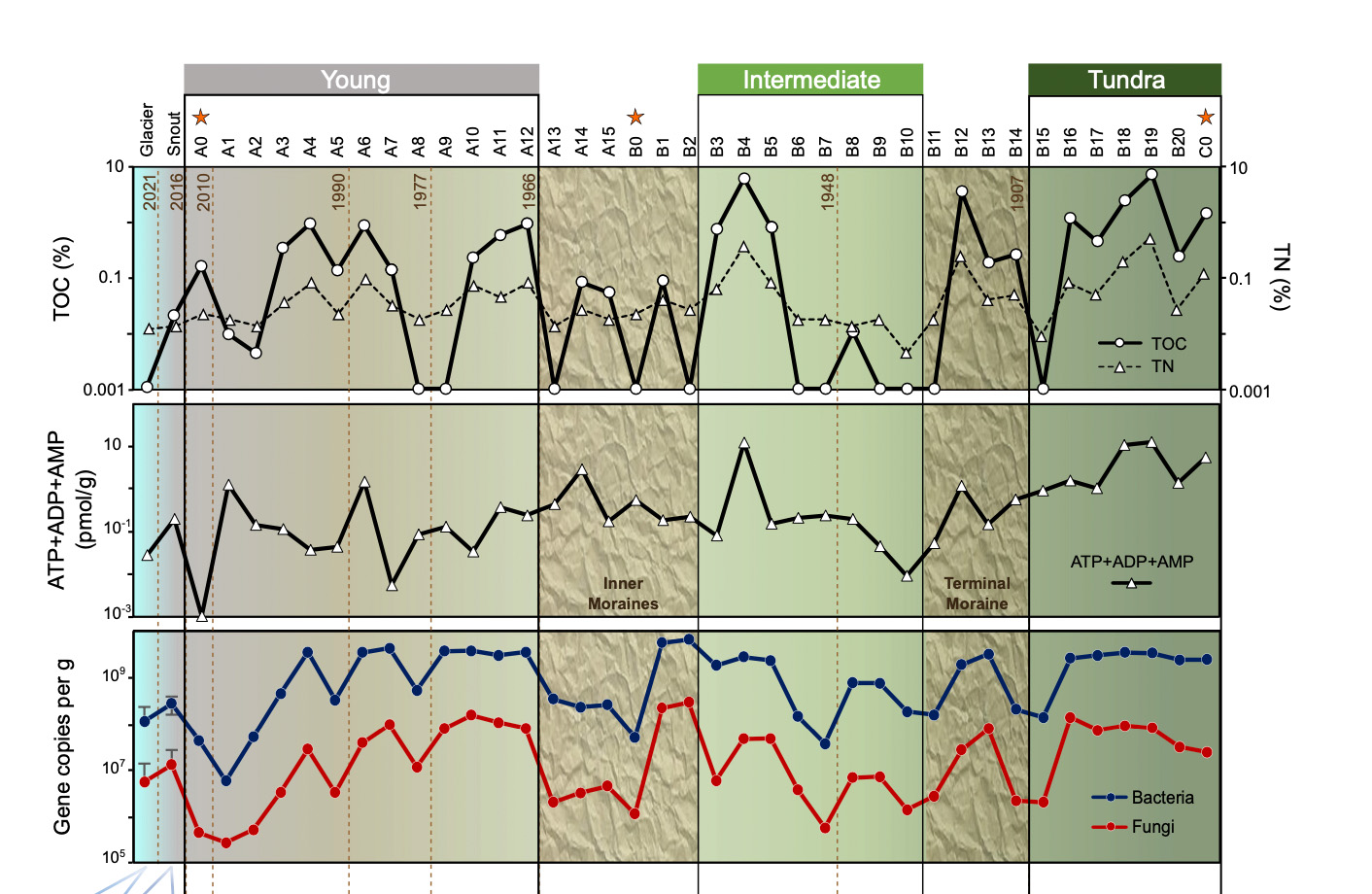Fungi found key to soil formation after arctic glacial retreat
Former MGAP students Juan Carlos Trejos-Espeleta and Juan Pablo Marin Jaramillo are the first and second authors of a new study published in PNAS, which includes results from their Master’s theses.
04.06.2024
Trejos-Espeleta J.C., Marin-Jaramillo J.P., Schmidt S.K., Sommers P., Bradley J.A., & Orsi W.D. (2014). Principal role of fungi in soil carbon stabilization during early pedogenesis in the high Arctic, Proc. Natl. Acad. Sci. U.S.A. 121 (28) e2402689121, https://doi.org/10.1073/pnas.2402689121
As Arctic glaciers melt due to climate change, new soils begin to form on the exposed land. This study shows that fungi—especially early-colonizing yeasts—play a vital role in stabilizing nutrients and building up organic carbon in these young, nutrient-poor soils. These fungi are highly efficient at using amino acids and help jump-start the soil development process. Over time, bacteria take over much of this role, but fungi are critical in the earliest stages. The findings highlight fungi as key contributors to new soil formation in a rapidly warming Arctic.


